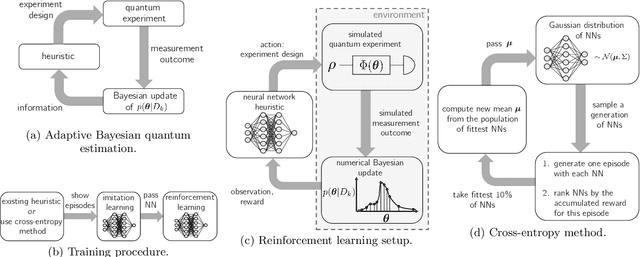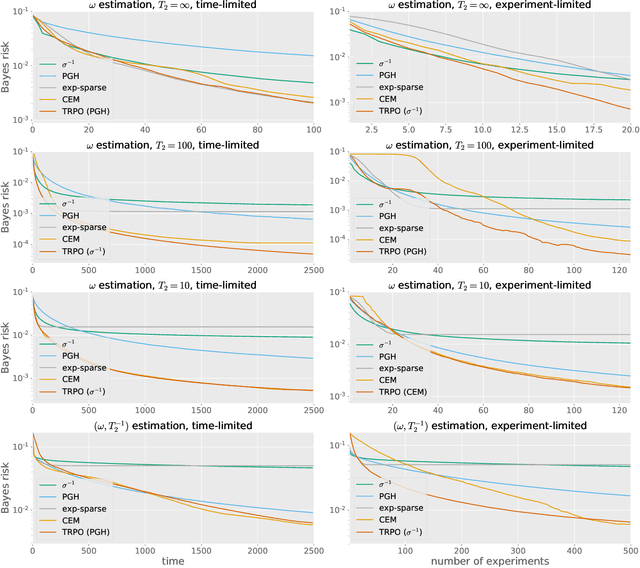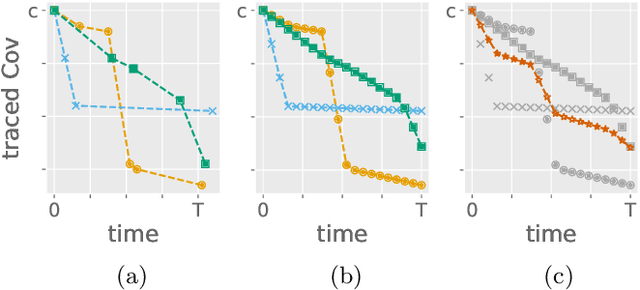Neural-Network Heuristics for Adaptive Bayesian Quantum Estimation
Paper and Code
Mar 04, 2020



Quantum metrology promises unprecedented measurement precision but suffers in practice from the limited availability of resources such as the number of probes, their coherence time, or non-classical quantum states. The adaptive Bayesian approach to parameter estimation allows for an efficient use of resources thanks to adaptive experiment design. For its practical success fast numerical solutions for the Bayesian update and the adaptive experiment design are crucial. Here we show that neural networks can be trained to become fast and strong experiment-design heuristics using a combination of an evolutionary strategy and reinforcement learning. Neural-network heuristics are shown to outperform established heuristics for the technologically important example of frequency estimation of a qubit that suffers from dephasing. Our method of creating neural-network heuristics is very general and complements the well-studied sequential Monte-Carlo method for Bayesian updates to form a complete framework for adaptive Bayesian quantum estimation.
 Add to Chrome
Add to Chrome Add to Firefox
Add to Firefox Add to Edge
Add to Edge